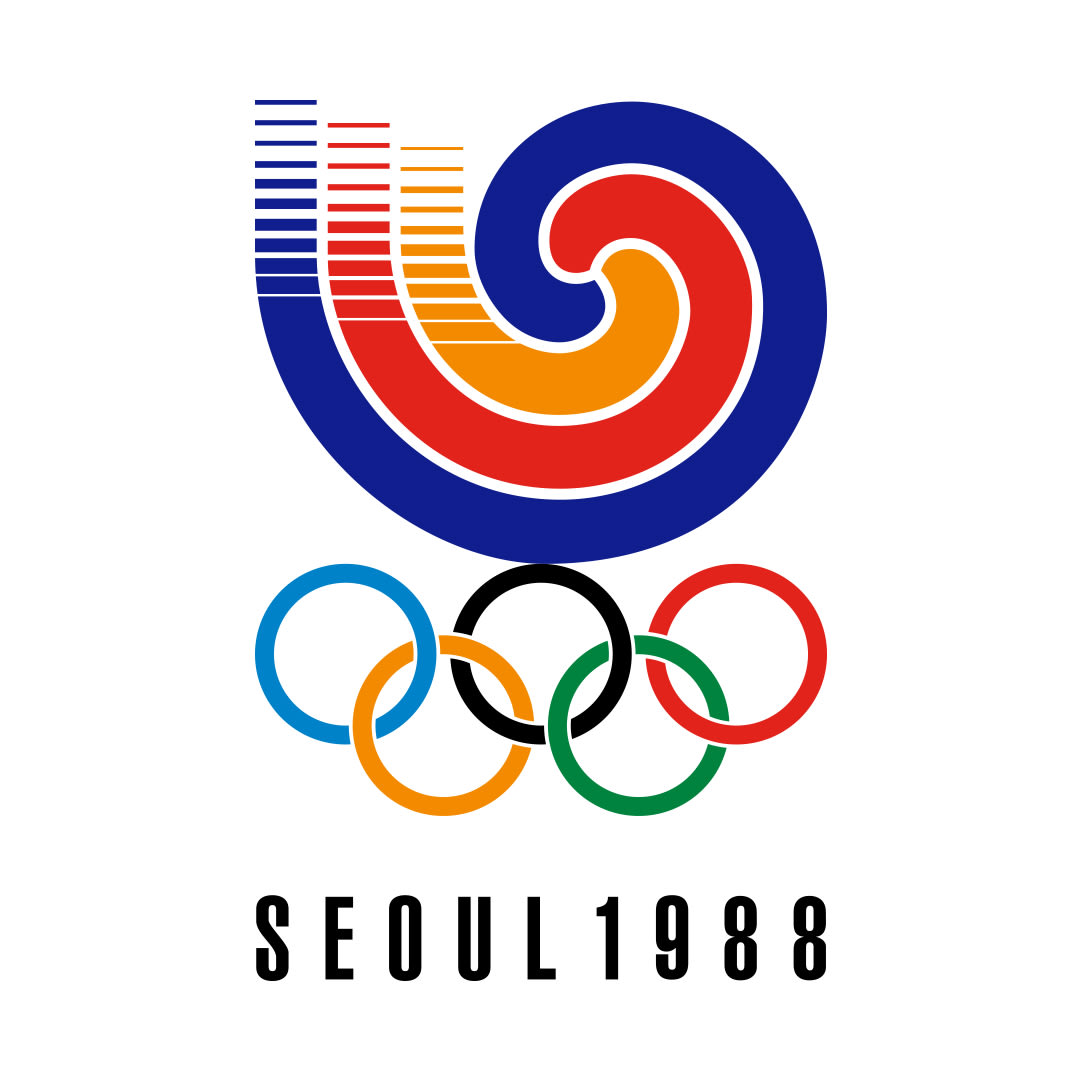
Olympic Games Seoul 1988
Seoul 1988The Brand
Emblem
The Seoul emblem features a samtaeguk pattern. A samtaeguk is a traditional Korean pattern and visual image which represents Korea. This pattern is widely used as decoration on fans, gates of Korean-style homes, artefacts and folk crafts. The Olympic emblem features patterns in two forms, centripetal and centrifugal. The centripetal motion represented the people of the world coming together in Korea, thus symbolising worldwide harmony, while the centrifugal motion represented a march onward in search of man’s lasting happiness and prosperity.
Poster
The official poster represented the Games ideal of "Harmony and Progress" in the combination of two images. In the poster, the five rings symbolising the pure Olympic spirit were rendered in bright figurative form to represent the Olympic ideal illuminating the world in peace forever. The image of the runner carrying the Olympic torch symbolised mankind's progress towards happiness and prosperity.
The official posters were done with computer graphic techniques, and light blue and bright orange colours were blended to symbolise Korea as the Land of Morning Calm. In addition to the official poster, the Organising Committee for the Seoul Games decided to produce 27 types of sports posters to introduce sports of the Seoul Olympic Games and to establish a familiar image of the Games.
Coins
1988
Discover the Games
The Brand
A visual identity is developed for each edition of the Olympic Games.Brand
The Medals
Beginning as an olive wreath, medal designs have evolved over the years.Medals
The Mascot
An original image, it must give concrete form to the Olympic spirit.Mascot
The Torch
An iconic part of any Olympic Games, each host offers their unique version.Torch
